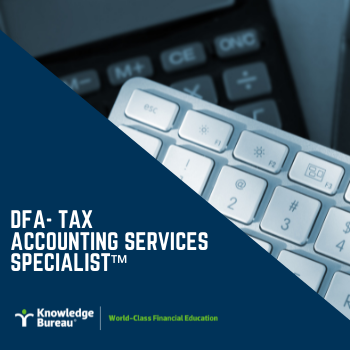Last updated: March 30 2022
Hiring Family Members? Avoid Punitive Tax on Split Income

If you are hiring family members over the age of 25 you may need to justify that the payments, you have made are reasonable in order to avoid a Tax on Split Income or TOSI. Specifically, according to the CRA, the reasonableness of an amount paid to your family member will be evaluated based on one or more of the following criteria:
Excerpted from the Advanced Payroll Course from Knowledge Bureau; available until March 31 for $200 off the regular tuition fees.
- Labour Contribution: the work performed by the individual
- Property Contribution: the property contributed by the individual
- Risk Incurred: the risks assumed by the individual
- Historical Payments: the total amounts paid in the past for the benefit of the individual
- And any other factors that may be relevant.
AUDIT PROOFING CHECKLIST. Be prepared to justify the contributions made to the business by your family members as follows:
A Reasonable Labour Contribution – Describe:
- Education, training and experience of the individual;
- Particular knowledge, skills or know-how the individual has;
- The nature of the tasks performed; and the hours required to complete the tasks;
- A competitive salary/wage for the tasks in businesses of similar size and industry;
- Degree and nature of activities in relation to those of a business of a comparable nature and size;
- Time spent on the activity in comparison to time spent in other activities;
- Business acumen; and
- Past performance of functions.
Property Contribution – Describe:
- The amount of capital contributed to the business;
- The amount of loans made to the business;
- The fair market value of property (both tangible and intangible property) transferred to the business, including technical knowledge, experience, skill, or know-how;
- Whether the individual has provided property as collateral for loans or other undertakings;
- Whether other sources of capital or loans are readily available;
- Whether comparable property are readily available;
- Whether the property is unique or personal to the individual;
- Opportunity costs; and
- Past property contributions.
Risk Assumption – Describe:
- Whether the individual is exposed to the financial liabilities of the business, be it through guarantees of mortgages, loans or lines of credit or otherwise;
- Whether the individual is exposed to statutory liabilities related to the business;
- Particular knowledge, skills or know-how that the individual possessed;
- whether in whole or part;
- Whether any risk is indemnified or otherwise limited in the circumstances, whether by agreement or otherwise;
- Whether the individual’s reputation or personal goodwill is at risk; and
- Past or ongoing risk assumption.
Finally, Total Amounts Paid
In determining whether a payment received by the individual exceeds a reasonable amount, CRA will also take into account amounts previously paid to the individual, including any payment of any kind (including salary or other remuneration or compensation, dividends, interest, proceeds, and fees), benefits, and deemed payments.
Bottom Line: Whether this passes an audit test will be based on the facts and circumstances of each case. What an auditor can look for is significantly detailed, and so it serves all employers well to have a detailed contract of employment, role descriptions and detailed CVs or resumes for every family member who works in the business.

